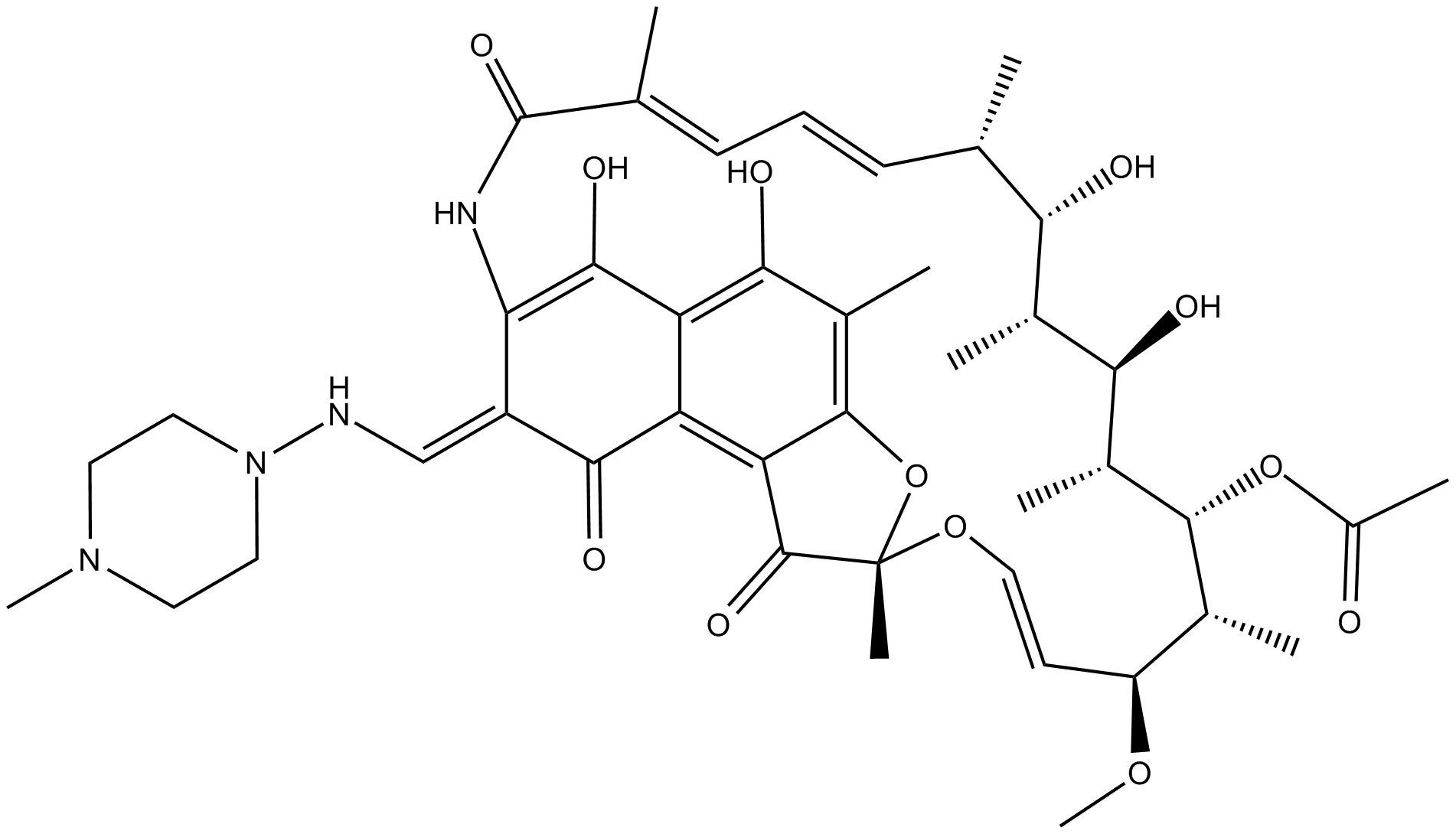Rifampin (Synonyms: NIH 10782, NSC 113926, Rifampin) |
| رقم الكتالوجGC16305 |
ريفامبين هو مضاد حيوي فعال واسع المجال ضد الأمراض البكتيرية.
Products are for research use only. Not for human use. We do not sell to patients.

Cas No.: 13292-46-1
Sample solution is provided at 25 µL, 10mM.
Rifampicin is a potent and broad spectrum antibiotic against bacterial pathogens.
Rifampicin (100 mg/mL) can block the functional activity of P-glycoprotein. Rifampicin is not a substract for P-glycoprotein. The mechanism of rifampicin resistance is unassociated with the functional activity of P-glycoprotein[3].
Rifampicin (200, 400 mg/kg) can induce fatty liver at high concentration[1]. Rifampicin (30 mg/kg, i.p.) treatment of S464P biofilms in vivo results in a slight decline, but earlier rebinds in bioluminescence from these catheters compared with the parental signal, whereas rifampicin has no affect on bioluminescence in mice infected with mutant H481Y[2].
References:
[1]. Piriou A, et al. Fatty liver induced by high doses of rifampicin in the rat: possible relation with an inhibition of RNA polymerases in eukariotic cells. Arch Toxicol Suppl. 1979;(2):333-7.
[2]. Yu J, et al. Monitoring in vivo fitness of rifampicin-resistant Staphylococcus aureus mutants in a mouse biofilm infection model. J Antimicrob Chemother. 2005 Apr;55(4):528-34. Epub 2005 Mar 2.
[3]. Erokhina MV, et al. [In vitro development of rifampicin resistance in the epithelial cells]. Probl Tuberk Bolezn Legk. 2006;(8):58-61.
Average Rating: 5 (Based on Reviews and 28 reference(s) in Google Scholar.)
GLPBIO products are for RESEARCH USE ONLY. Please make sure your review or question is research based.
Required fields are marked with *




















